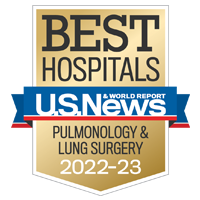
Nontuberculous Mycobacteria (NTM)
Nontuberculous mycobacteria (NTM) is a group of bacteria, normally found in soil and water and some domestic and wild animals, that can cause severe lung disease. Although NTM naturally exists in the environment and doesn't affect most people, some develop an NTM infection when they inhale the bacteria in the air or water mist, or when they drink water containing NTM.
Each year in the United States, about two in every 100,000 people develop an NTM infection. Some people who are susceptible to the infection have an unknown defect in their lung structure or immune system, lung damage from a pre-existing chronic obstructive pulmonary disease (COPD), such as emphysema and bronchiectasis, or an immune deficiency disorder, such as HIV or AIDS.
NTM does not cause tuberculosis (TB), and unlike TB, which is spread from person to person, NTM is not contagious.
Our Approach to Nontuberculous Mycobacteria
NTM infections can cause symptoms seen in other lung conditions, making diagnosis a challenge. UCSF pulmonologists are experts at detecting and treating these infections, and tailor therapy to the species of bacteria causing each patient's illness. The medication regimens may have side effects, so our specialists monitor patients closely during treatment.
Awards & recognition
-

Among the top hospitals in the nation
-

Best in Northern California for pulmonology & lung surgery
UCSF Health medical specialists have reviewed this information. It is for educational purposes only and is not intended to replace the advice of your doctor or other health care provider. We encourage you to discuss any questions or concerns you may have with your provider.





